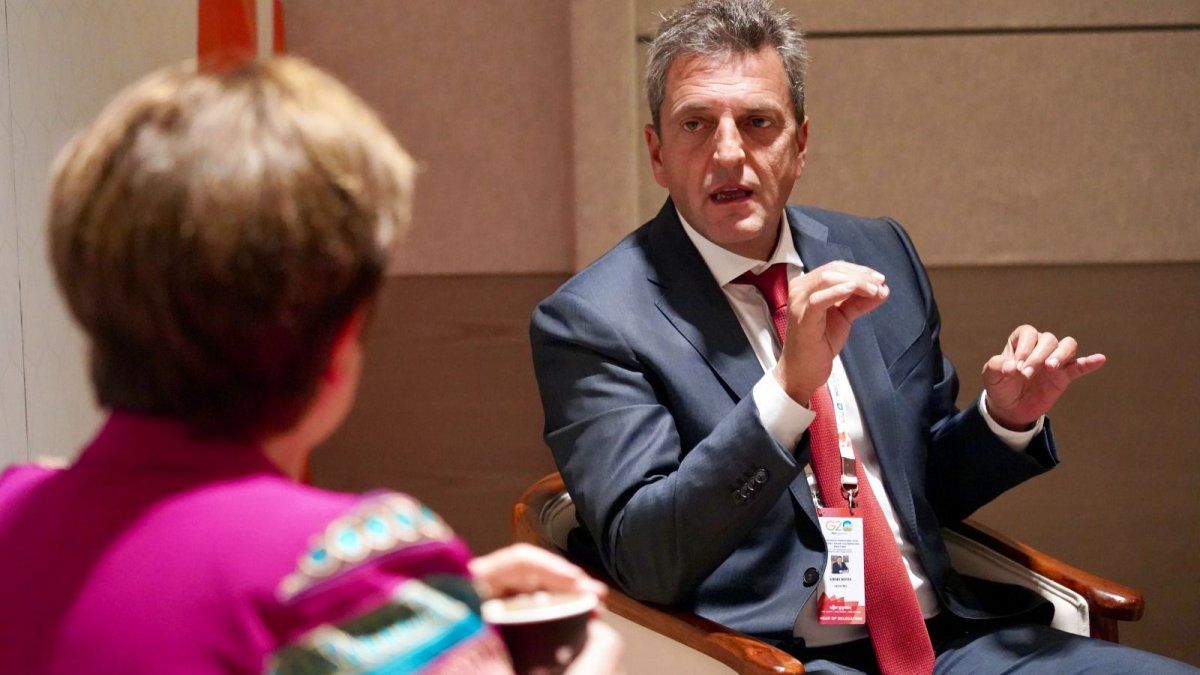Economy sources told Ámbito that the visit will be in mid-June. Official optimism for the advance of disbursements. Meanwhile, the Foreign Ministry complains about the obstacles to Argentine exports.
Economy Minister Sergio Massa will travel to the United States this month to seal negotiations with the International Monetary Fund. While a large delegation of leaders and officials seek funds in China to reinforce the Central Bank’s reserves, from Buenos Aires the head of Advisors, Leonardo Madcur, and the Secretary of Economic Programming, Gabriel Rubinstein, wrestle with the IMF staff to recalibrate the agreement guidelines.
The content you want to access is exclusive to subscribers.
In the Government there is optimism regarding the advancement of disbursements. The Foreign Ministry complained to the Joe Biden administration for the obstacles to the trade of Argentine products. “We have it written down for the middle of this month, between the 12th and the 20th,” they replied at the Palacio de Hacienda before the Ámbito consultation on the Economy Minister’s trip to Washington to meet with Fund officials. Those who accompany Massa on a day-to-day basis assure that his visit will be to close the negotiation and come back with a new agreement.


Therefore, they infer that the end of these conversations “is very close.” The final stretch of the reformulation of the program, which today seems impossible to comply with due to the effects of the drought, appears while a large part of the economic team and the most influential political leaders within the ruling party are in China seeking relief for the reserves to reduce exchange rate pressures. Precisely, the Asian giant is the main opponent in geopolitical terms of the United States, which in turn is the shareholder with the greatest weight and the only one with veto power within the IMF board of directors. Another way to indirectly pressure the White House?
“We are receiving great support from China in specific issues and also in gestures,” they highlighted in the Argentine delegation. High sources familiar with the negotiations with the Fund are optimistic regarding the advance of disbursements. In the Government they are convinced that the board of directors will agree to advance funds. “Nobody wants to go through a review in September with everything that the electoral dynamics in Argentina implies,” they told this medium.
Doubts persist as to whether part of these currencies (and if so how much) can be used to intervene in parallel dollars if necessary.
Chancery claim
Support for the IMF is not the only agenda underway with the White House. Between May 29 and 31, the Secretary for International Economic Relations, Cecilia Todesca Bocco, traveled to Washington to discuss the obstacles that the United States imposes on the arrival of Argentine products. It is that in the land of the free market they obstruct exports of biodiesel, honey and industrial products, among others, for more than US$1.8 billion annually.
Although the bilateral trade balance is chronically in deficit for Argentina, the red could be less. Under the pretext of commercial investigations, in recent years obstacles have been placed on access to the North American market for nearly 30% of local exports.
On this and other issues, Todesca Bocco spoke with the Undersecretary of Commerce for Global Markets, Arun Venkataraman, and with the Assistant Trade Representative for the Western Hemisphere, Daniel Watson, among others. A positive precedent dates back to last March, when the efforts of the Foreign Ministry managed to suspend the investigations into concentrated white grape juice and preserve the access of the Argentine product to that market.
Source: Ambito




